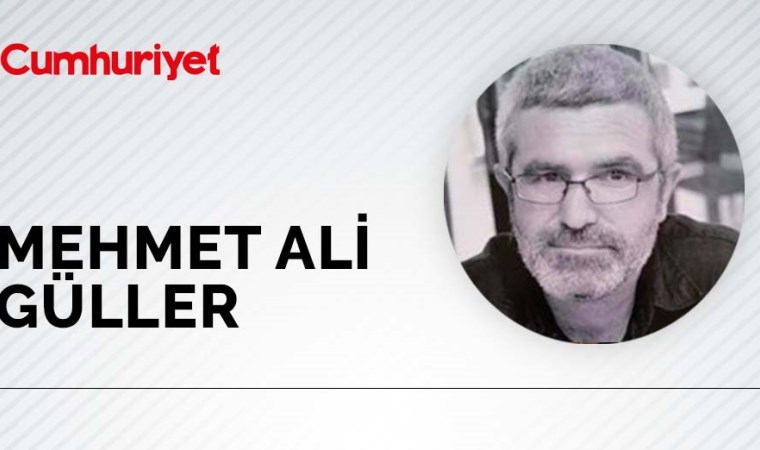AKP-MHP in decline, “no” block growing
According to the opposition, which has embarked on 2018 in the expectation of an early election, the “no” block has risen to 53%. This is said to explain Kılıçdaroğlu’s target of 60% in the presidential election.

Erdem Gül
The parties’ congress processes, discussion over presidential candidates and the acceleration of work on the harmonisation law have led to calculations being made over the outcome of an election held either early in 2018 or else on time. According to the opposition, there is a shift in the share of the vote in the referendum and the “yes” block is declining while the “no” block continues to increase.
All signs in the Ankara lobbies point to the holding of an early election during 2018 rather than 2019 being awaited. Despite pronouncements that the elections will be held on time, the operations against mayors and the ongoing congress processes create the impression that the early election option is weighing on the AKP’s mind. Staff appointments for subcontractees, the minimum wage and initiatives aimed at various social and community groups are also considered to be signs that the AKP is contemplating an early election. The lower prospective vote for the AKP in local elections is another consideration in support of bringing the presidential and parliamentary elections forward.
Motion in the “no” block
These expectations of an early election have set the opposition parties in motion. With the CHP having completed the congress procedures for its general assembly on 3 February, the HDP is focusing on restructuring following the decision of imprisoned Selahattin Demirtaş to stand down. As to the Good Party, which Meral Akşener has recently formed, it is conducting a speedy process of organisation and promotion so as not to be left out in the early election that it envisages will be held on 15 July. SP General Chair Temel Karamollaoğlu, in turn, is making visits to parties they acted jointly with in the “no” block in the referendum.
Hope-inspiring development
With it becoming certain that there will be no reduction in the ten per cent threshold, expectations strengthen that a formula will be found for an alliance between the MHP and AKP. Conversely, the opposition has stepped up the quest to consolidate and further strengthen the “no” grouping in the referendum as the election nears. This state of affairs has also heightened interest in polls and analytical calculations over the outcome of the election. The polls are yielding conclusions that, after a long time, inspire hope in the opposition. According to the opposition, the share of the vote in the referendum is tipping in favour of “no”. The opposition has two figures to hand. The first indicates that the “no” vote has moved ahead at the 55-45 level. According to the second figure, though, “no” measured in at 43% and “yes” at 47%.
Set to fall further
This information on the opposition’s desk is based on polls putting the AKP in the 38-40% and the MHP in the 5-7% band. Despite the total AKP and MHP vote at the time of the referendum being in the sixties per cent, the “yes” vote reaching a mere 51% in the referendum is considered to be hope inspiring for the opposition. Analyses are being made that the total AKP-MHP vote will fall further as the process unfolds and, if there is an official alliance, there will be an even greater hemorrhage of voters from both parties. CHP General Chair Kemal Kılıçdaroğlu’s pronouncement, “Our goal in the election is 60% not 50%+1” is also seen as being inspired by these assessments.
State of emergency not on the people’s agenda
The further extension of the state of emergency that has been in place for one and a half years will be discussed at today’s Cabinet meeting. For quite some time, state of emergency practices that further cement regressions in freedom of thought and expression and democratic rights have attracted harsh criticism especially from the opposition. With criticism even emanating from eleventh president Abdullah Gül over the latest state of emergency decree to be issued receiving a very harsh reaction from the ruling party, this has given rise to interpretations that, if not even Gül has freedom of speech, nobody has. Following Gül’s rough reception, the word in the lobbies is that voices were raised, even if in a restrained manner, within the AKP saying, “Democratisation and freedoms were our founding philosophy. Now not even Gül can speak.” However, from what I have gleaned, the AKP administration responds even to rebukes of this low-key kind by saying, “We look to the people. The people have no such issues. The people have no issue with the state of emergency. Concepts like freedom of speech and freedom of thought are not on the people’s agenda.”

En Çok Okunan Haberler
-
 Korgeneral Pekin'den çarpıcı yorum
Korgeneral Pekin'den çarpıcı yorum
-
 Köfteci Yusuf'tan gıda skandalı sonrası yeni hamle
Köfteci Yusuf'tan gıda skandalı sonrası yeni hamle
-
 Petlas Yönetim Kurulu Üyesi Özcan, uçakta olay çıkardı
Petlas Yönetim Kurulu Üyesi Özcan, uçakta olay çıkardı
-
 Colani’nin arabası
Colani’nin arabası
-
 Komutanları olumsuz görüş vermedi, görevlerinden oldu
Komutanları olumsuz görüş vermedi, görevlerinden oldu
-
 148 bin metrekarelik alan daha!
148 bin metrekarelik alan daha!
-
 '100 yılda bir görülebilecek akımın başlangıcındayız'
'100 yılda bir görülebilecek akımın başlangıcındayız'
-
 Milletvekilleri Genel Kurulu terk etti!
Milletvekilleri Genel Kurulu terk etti!
-
 Erdoğan'dan Suriyeliler açıklaması
Erdoğan'dan Suriyeliler açıklaması
-
 'Bıyık altından gülüyorsunuz'
'Bıyık altından gülüyorsunuz'